
Relics is a 1971 compilation album by English progressive rock band Pink Floyd. The album was released in the UK on 14 May 1971 and in the United States on the following day. Initially released by Starline, the compilation was reissued by Music for Pleasure in the United Kingdom, while Harvest and Capitol distributed the album in the United States. A remastered CD was released in 1996 with a different album cover, picturing a three-dimensional model based on the sketch drawn by drummer Nick Mason for the album's initial release.
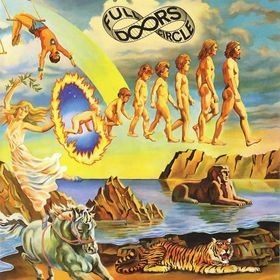
Full Circle is the eighth studio album by the American rock band the Doors, released in August 1972. It is the second album after Jim Morrison's death, and their last until the 1978 album An American Prayer. The album includes "The Mosquito", the last Doors single to chart.

Rock of Ages: The Band in Concert is a live album by the Band, released in 1972. It was compiled from recordings made during their series of shows at the Academy of Music in New York City, from December 28 through December 31, 1971. It peaked at No. 6 on the Billboard 200 chart, and was certified a gold record by the RIAA. An expanded release of recordings taken from the same series of shows, called Live at the Academy of Music 1971, was released in 2013.
Sun Dial is a British psychedelic rock band formed in 1990 by Gary Ramon.

Signify is the fourth studio album by British progressive rock band Porcupine Tree. It was released in September 1996 and later re-released in 2003 with a second disc of demos, which had previously been released on the b-side cassette tape Insignificance, and a third time, on vinyl, on 9 May 2011. It was the first album that frontman Steven Wilson recorded with the band on board from the beginning; previous albums had been essentially solo efforts with occasional help from other musicians.
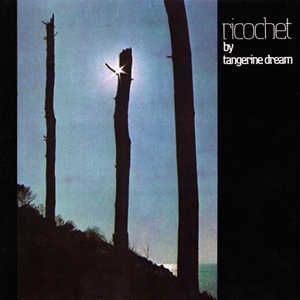
Ricochet is the seventh major release and first live album by the German electronic music group Tangerine Dream. It was released, on the Virgin label, in 1975. It consists of two side-long compositions mixed from studio recordings and the UK portion of their August–October 1975 European Tour. The sound of the album is similar to that of the group's other "Virgin Years" releases, relying heavily on synthesizers and sequencers to produce a dense, ambient soundscape, but is much more energetic than their previous works. Ricochet uses more percussion and electric guitar than its predecessors Phaedra and Rubycon, and borders on electronic rock. The main innovation on the album is the use of complex, multi-layered rhythms, foreshadowing the band's own direction in the 1980s and trance music and similar genres of electronic dance music.

Nektar is an English progressive rock band formed in Hamburg, West Germany in 1969, by guitarist and lead vocalist Roye Albrighton, keyboardist Allan "Taff" Freeman, bassist Derek "Mo" Moore, and drummer Ron Howden.

In the Land of Grey and Pink is the third album by English progressive rock band Caravan, released in April 1971 on Deram Records. It was produced by David Hitchcock and was the last album to feature the original lineup of Richard Coughlan, Pye Hastings, Richard Sinclair and Dave Sinclair until 1982's Back to Front.

Dieter Dierks is a German record producer, sound engineer, music publisher, studio owner and musician. He became well known as producer of the rock band Scorpions who were signed to him between 1975 and 1988. Before that time, he had already successfully established Hamburg-based band Atlantis in the US. Between 1969 and 1975, numerous albums of the "Krautrock" era were produced at Dierks Studio. From 1975 onwards, more and more international artists started booking his state-of-the art sound and TV studios.
Spring were an English progressive rock band from Leicester.

A Tab in the Ocean is the second album from German-based English progressive rock band Nektar.

...Sounds Like This is the third album from English progressive rock band Nektar, released in 1973. It was the first Nektar album to be released in their home country of the United Kingdom. An attempt to recreate the band's live sound, ...Sounds Like This was largely improvised and dominated by extensive instrumental jamming, in contrast to their usual concept and composition-driven albums. The different approach to recording, combined with a number of difficulties with the mixing, resulted in it being the band's heaviest work.
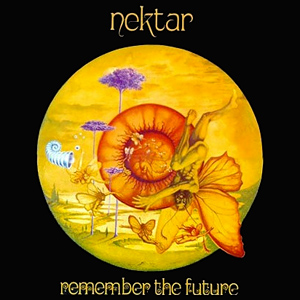
Remember the Future is the fourth album from English progressive rock band Nektar. Much like their debut album Journey to the Centre of the Eye, it is a concept album which is formally divided into ten tracks but in fact consists of one continuous piece of music.

Down to Earth is the fifth album from English progressive rock band Nektar. A snippet of the song "Show Me the Way" was featured in an episode from the first season of the sitcom The Jeffersons.
Les Fradkin is an American MIDI guitarist, keyboardist, songwriter, composer, and record producer. He is best known for being a member of the original cast of the hit Broadway show Beatlemania. In addition to playing MIDI guitar, he plays 12 string guitar, the Starr Labs Ztar, guitar synthesizer, SynthAxe, Hammond organ, Mellotron, piano, bass guitar, and Moog synthesizer.
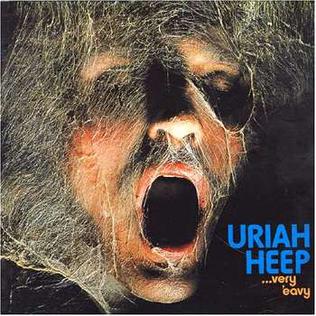
...Very 'Eavy ...Very 'Umble is the debut studio album by English rock band Uriah Heep.

Michael Thomas Pinder was an English rock musician. He was a founding member and the original keyboard player of the rock group the Moody Blues. He left the group following the recording of the band's ninth album Octave in 1978. Pinder was renowned for his technological contributions to rock music, most notably in the development and emergence of the Mellotron in 1960s rock music. In 2018, he was inducted into the Rock and Roll Hall of Fame as a member of the Moody Blues. He was the last surviving member of the group's original lineup.
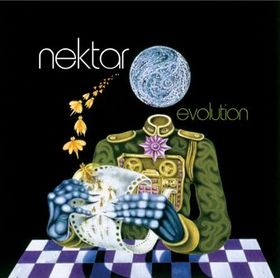
Evolution is the tenth album by progressive rock band Nektar, released in 2004. It was the first Nektar album since 1977's Magic Is a Child to feature original drummer Ron Howden, who rejoined other founding members Roye Albrighton and Taff Freeman.

An Audience With the Cope 2000 is the sixteenth solo album by Julian Cope.
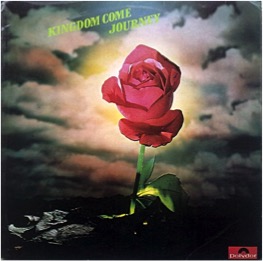
Journey is the third and final studio album by British rock band Kingdom Come, known as Arthur Brown's Kingdom Come outside the UK. After the band featured drastically different styles on their first two albums, and after several line-up changes, band leader Arthur Brown worked the band towards a new direction for Journey. The album was the first album in history to use a drum machine responsible for all the percussive sounds on the album. The drum machine in question was the Bentley Rhythm Ace, manufactured by Ace Tone. Although the band had commented the album was entirely based on the drum machine, the band attempted to, in rock and electronic terms, create an album that was the closest they could get "to a string quartet". The album features other experimental techniques, including using a triangle to guide guitar playing and extensive use of Mellotron and synthesizers from new member Victor Peraino, who replaced Michael "Goodge" Harris early on production.

















